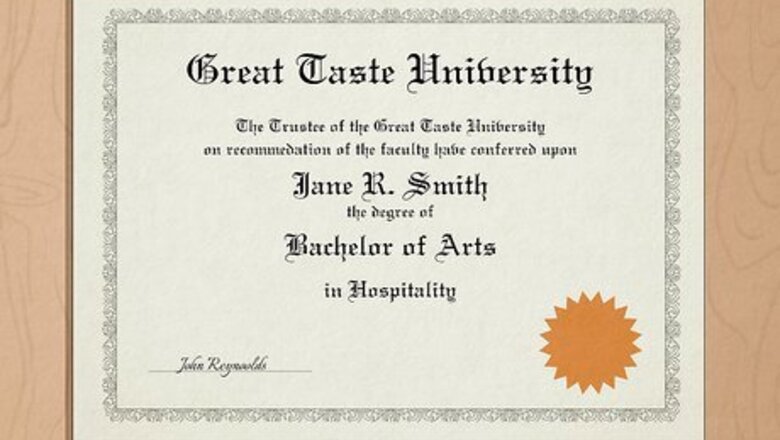
views
X
Research source
If this sounds like a blast to you, you may have found your calling!
Qualifications
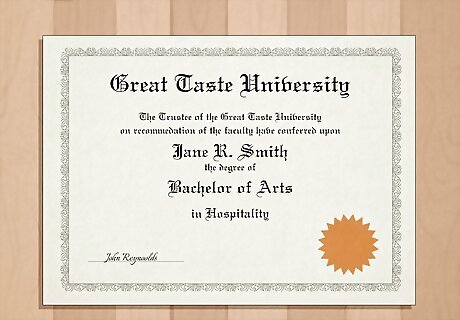
Get a bachelor’s degree in culinary arts, food studies, or hospitality. Michelin inspectors need to be extremely qualified, so getting a formal education in a relevant field is ideal. If you can, attend a 4-year university and major in culinary studies, nutrition, food science, hospitality, or hotel management. If you already have a bachelor’s degree in another field, attend culinary school or take continuing education classes to get the foundational background Michelin is looking for. A bachelor’s degree in a food-related field is not mandatory, but it’s very difficult to land this position if you don’t have decades of experience at a high-end restaurant to compensate.
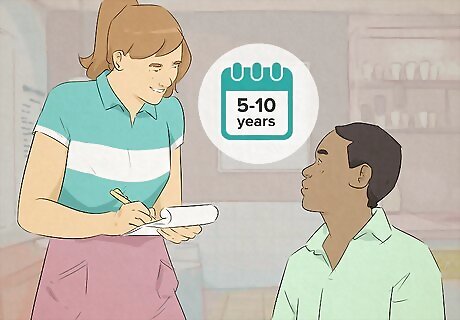
Work as a chef, server, or restaurant manager for 5-10 years. The job postings for Michelin inspectors explicitly require 5-10 years of experience. If you don’t have this yet, spend a few years on the job first. Find work as a manager, server, or chef and learn everything you possibly can about crafting an excellent culinary experience for your customers. Ask a lot of questions. The more you can absorb from your coworkers, kitchen staff, and managers, the better. Michelin inspectors take the entire restaurant’s ecosystem into account when they review food, so the more you learn now, the easier the job will be in the future. If you can, get experience in a fine-dining establishment. The Michelin guide doesn’t strictly review fancy restaurants, but they do tend to take up a large percentage of their guides.
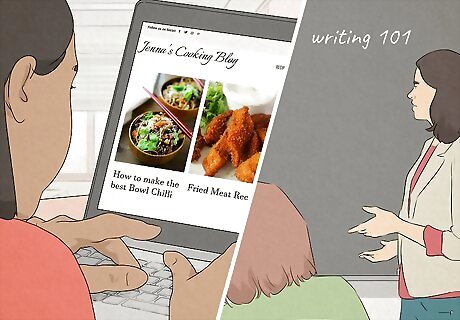
Develop your writing skills by maintaining a blog or taking classes. Michelin inspectors spend a lot of time writing. While your restaurant experience and education qualify you as an expert in food, you must develop your writing skills to be qualified as a wordsmith. Start a food blog to practice reviewing food if you can, or take some writing classes. Focus on building your ability to describe food, flavors, and different cooking techniques. A good food critic describes food in a vibrant and colorful way. They also must provide context by explaining the chef’s background and crafting a narrative of their dining experience. Practice describing dishes in the most vivid, accurate way possible. Tell stories, read the work of other critics, and follow popular blogs to see how other authors do it! If you do start a blog, don’t mention your desire to become a Michelin inspector anywhere on your site. Michelin inspectors must be 100% anonymous, and hinting at any relationship or desire to join the organization may deter them from hiring you in the future.
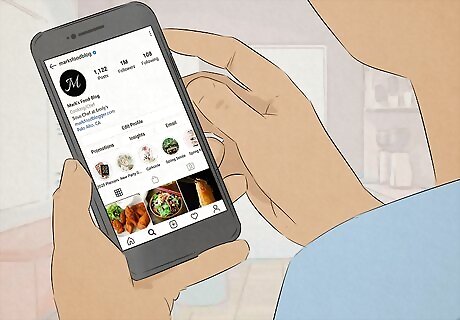
Build a social media presence and focus exclusively on food. Tweet short reviews of popular restaurants in your area and create an Instagram account filled with high-quality photos of the food you eat. All Michelin inspectors are required to craft anonymous posts on social media for each restaurant they review, so get experience on social media ahead of time to showcase what you’re capable of when it comes time to apply. Offer to run your restaurant’s social media accounts while you’re getting experience. This is an easy way to build the skills you need!

Learn how to taste and write about fine wine. Previous Michelin inspector job postings explicitly mention knowledge of wine as a prerequisite. If you aren’t an avid drinker, do some reading and research in your spare time to get acquainted with fine wine. Go to a wine bar and chat up the sommelier, attend wine tastings, and try out different wines to develop your palate. You can also take a sommelier class in your spare time, or subscribe to Decanter Magazine. Practice reviewing wine! First, download an app like Delectable or Vivino. Go try a random wine, jot a few notes down, then take a photo of the label with your app to pull up expert reviews. This is a great way to see how closely your opinion lines up with other wine enthusiasts.
Application

Check Michelin’s website regularly to spot openings early. Michelin inspector openings appear on their company website, but they announce openings on the company’s Michelin Guide website as well. Since this is a highly coveted position in the culinary world, check both websites regularly to look out for openings. Keep in mind, there may only be 5 inspectors assigned to a region at any given time, so you may not see any openings available for a year or two. Try searching for “inspector” or “food critic” to see what kind of postings pop up. Since Michelin is primarily a tire manufacturer, you’re going to see postings for their automotive business on the same company page. Don’t worry. You’re in the right spot. Openings on Michelin’s company page can be found here: https://jobs.michelinman.com/en. Announcements on Michelin’s guide site can be found here: https://guide.michelin.com/en.
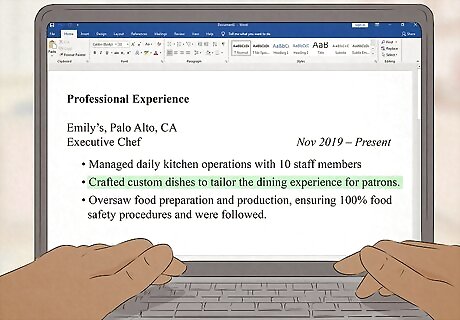
Tailor a resume for the position to highlight your culinary credentials. Put a resume together that describes your work experience in the food industry. Emphasize any managerial roles you’ve held, and include skills that highlight your travel experience, writing skills, and palate. Since inspectors do a fair bit of writing, take your time to revise and proofread thoroughly to show them you’re a great writer. For example, instead of writing that you “plated dishes for patrons” under one of your positions, you might write, “Crafted custom dishes to tailor the dining experience for patrons.” Mention your integrity and collaborative experience as well. Outside of a resume, the rest of the hiring process for Michelin inspectors is unknown. Michelin’s process is pretty secretive, but they’ve never mentioned a cover letter or other requirements in previous job postings. The odds are high that this will be a unique hiring process.

Follow Michelin’s instructions to fill out and submit your application online. The hiring process for Michelin inspectors is shrouded in all sorts of secrecy. The job posting will redirect you to a link to access the application, but it’s unclear what that entails. Once you’ve filled out the application and submitted your resume, you may need to just wait for a response. You may have to complete an exam, interview, and provide references, so just wait for Michelin’s reply to see what’s next! A lot of the Michelin Guide’s process is unknown to the public. Unfortunately, there just isn’t prep work you can do regarding the application itself. If you get this far though, you’ve got a serious shot at landing the gig! You may be required to move to a new city to take the job.
Onboarding

Complete your 6-month training program and learn the ropes. Once you’re hired, show up where you’re told to go for your training program. The onboarding process takes 6 months, and it is fairly intensive. Your palette will be tested, you’ll learn about Michelin’s review process, and you’ll shadow a senior inspector to see how they complete their reviews. Be enthusiastic, ask questions, and take rigorous notes! You’ll need to commit the review process to memory so put the work in now to master their system!
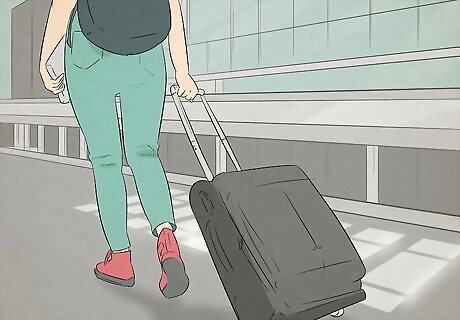
Be prepared to travel to a new city to cover a region. Inspectors are assigned to specific zones. For example, you may cover restaurants only in New York, Northern California, or Western France. Get ready to pack your things and find a place in your new city! You won’t need to worry about finding the nicest place possible. You’ll be eating out for 275 meals a year and you’re going to on the road most of the time, so you aren’t going to have a ton of time to hang out at home. Unfortunately, Michelin will not pay relocation costs.

Keep the hiring process and job under wraps to remain anonymous. Michelin’s entire review process is predicated on the idea that the reviewers are 100% anonymous. Some inspectors compare their work to being in a covert CIA operation! Don’t advertise that you’re pursuing this new gig on social media and only tell your closest family members about your new job if you land it. When you start reviewing restaurants, make reservations under a fake name and pay in cash if you can to keep your secret under wraps. Don’t tell friends or distant relatives what you’re doing for work if you think they might spill the beans. If you do decide to tell anyone, make it absolutely clear that your job is at stake if they start telling the world what you’re up to.














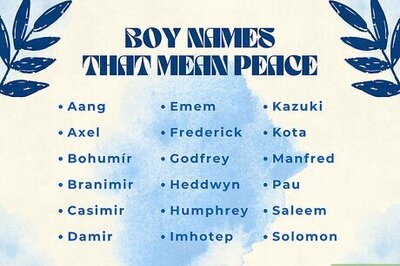


Comments
0 comment